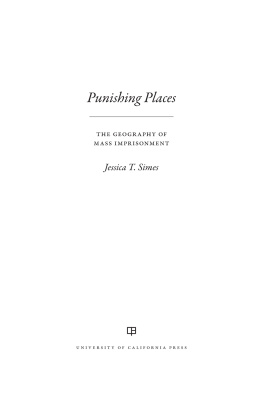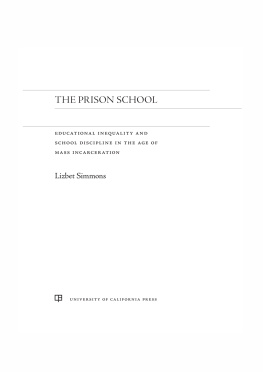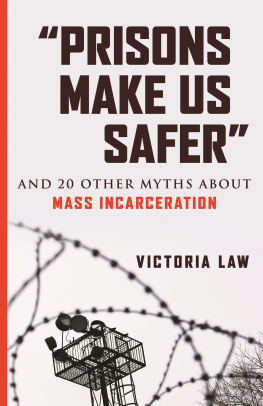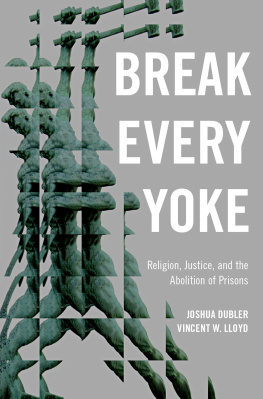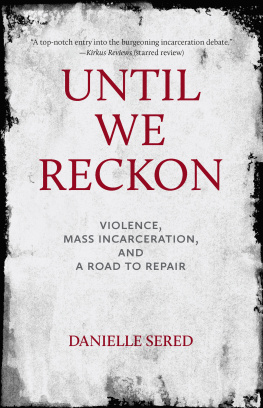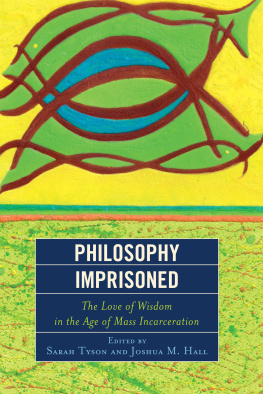
Prestige Television and Prison in the Age of Mass Incarceration
Television shows that we might call prestige television represent prison in ways that are sometimes reductive, sometimes powerful, and sometimes exceedingly complex. This book examines various programmes across the genres of drama, comedy and horror that utilize prison or places of incarceration as a central theme or setting to show how they conform to or challenge the standard conversation about the prison industrial complex and the common understanding of prisons as violent spaces where we house the worst among us.
Drawing on the work of Angela Davis, Doran Larson, Dylan Rodriguez, Michelle Alexander, and Lisa Guenther, the author presents focused studies of Orange Is the New Black, Rectify, American Horror Story and The Walking Dead (along with briefer discussions of The 100, police procedurals, and popular sitcoms) to explore the responsibility of television to represent prison in as authentic a fashion as possible, the exploitation of the incarcerated in reductive representations of prison, and the shifting nature of the national conversation about prison as it is depicted on screen. As such, the book will appeal to scholars of cultural and media studies, criminology and sociology with interests in incarceration and representations of prison in popular culture.
Victoria M. Bryan is the Honors Program Director and Associate Professor of English at Cleveland State Community College, USA. She is also founder and director of the Turn the Page Literacy Initiative that operates in Southeast Tennessee. Dr Bryan earned her PhD in English from the University of Mississippi in 2014.
The Cultural Politics of Media and Popular Culture
Series Editor: C. Richard King
Washington State University, USA
Dedicated to a renewed engagement with culture, this series fosters critical, contextual analyses and cross-disciplinary examinations of popular culture as a site of cultural politics. It welcomes theoretically grounded and critically engaged accounts of the politics of contemporary popular culture and the popular dimensions of cultural politics. Without being aligned to a specific theoretical or methodological approach, The Cultural Politics of Media and Culture publishes monographs and edited collections that promote dialogues on central subjects, such as representation, identity, power, consumption, citizenship, desire and difference.
Offering approachable and insightful analyses that complicate race, class, gender, sexuality, (dis)ability and nation across various sites of production and consumption, including film, television, music, advertising, sport, fashion, food, youth, subcultures and new media, The Cultural Politics of Media and Popular Culture welcomes work that explores the importance of text, context and subtext as these relate to the ways in which popular cultures work alongside hegemony.
Also available in the series:
Convergent Wrestling
Participatory Culture, Transmedia Storytelling, and Intertextuality in the Squared Circle
CarrieLynn Reinhard and Christopher John Olson
Make America Hate Again
Trump-Era Horror and the Politics of Fear
Edited by Victoria McCollum
Prestige Television and Prison in the Age of Mass Incarceration
A Wall Rise Up
Victoria M. Bryan
Crazy Funny
Popular Black Satire and The Method of Madness
Lisa A. Guerrero
For more information about this series, please visit: www.routledge.com/The-Cultural-Politics-of-Media-and-Popular-Culture/book-series/ASHSER-1395
First published 2020
by Routledge
2 Park Square, Milton Park, Abingdon, Oxon OX14 4RN
and by Routledge
52 Vanderbilt Avenue, New York, NY 10017
Routledge is an imprint of the Taylor & Francis Group, an informa business
2020 Victoria M. Bryan
The right of Victoria M. Bryan to be identified as author of this work has been asserted by her in accordance with sections 77 and 78 of the Copyright, Designs and Patents Act 1988.
All rights reserved. No part of this book may be reprinted or reproduced or utilised in any form or by any electronic, mechanical, or other means, now known or hereafter invented, including photocopying and recording, or in any information storage or retrieval system, without permission in writing from the publishers.
Trademark notice: Product or corporate names may be trademarks or registered trademarks, and are used only for identification and explanation without intent to infringe.
British Library Cataloguing in Publication Data
A catalogue record for this book is available from the British Library
Library of Congress Cataloging-in-Publication Data
Names: Bryan, Victoria M., author.
Title: Prestige television and prison in the age of mass incarceration : a wall rise up / Victoria Bryan.
Description: 1 Edition. | New York : Routledge, 2019. Identifiers: LCCN 2019012686 | ISBN 9781138234512 (hardback) |ISBN 9781315306711 (ebook)
Subjects: LCSH: Prisoners--Civil rigthts. | Imprisonment--Social aspects. | Television--Social aspects.
Classification: LCC HV8706 .B78 2019 | DDC 791.45/6556--dc23
LC record available at https://lccn.loc.gov/2019012686
ISBN: 978-1-138-23451-2 (hbk)
ISBN: 978-1-315-30671-1 (ebk)
For every student I have taught through the Turn the Page literacy program and the Tennessee Higher Education Initiative. For every incarcerated individual who will never make it to my classroom. For every personincarcerated or freewho would not allow me to give up on this book. You have affected me in unfathomable ways.
In the summer of 2016, I called home to the United States from Madrid to touch base with Desdia Ewing, a teacher working with the literacy program I founded at the local county jail a year and a half earlier. We were bringing a new assistant discussion facilitator into the program, and Desdia would be attending the jails volunteer training with her. The training at this particular facility is usually somewhat traumatic for new teachers. They enter the program wanting to bring literacy to our students, discuss complicated texts about freedom and oppression, encourage students to write about their lives and experiences, and feel as if they are making a difference in the oppressive structures of the American criminal justice system. What they find at this jail training, however, is fear-mongering, religious-based rhetoric about the murderers and rapists they will encounter once they walk through the doors. Instead of having their energy stoked by useful preparatory information, they feel as if they are being stymied by problematic representations of those who are incarcerated.
Haven, the new teacher, had met with Desdia that day so that Desdia could prepare her for what she was about to encounter. Being nineteen years old at the time, Haven brought her mom to this pre-training meeting, not because she felt that she needed an extra support but because she believed her mom needed a touchstone for the kind of work she would soon be sending her daughter off to do. During my phone call with Desdia afterwards, and during later conversations with Haven, they told me about the mothers questions of concern and unintentionally problematic language. She had asked about how safe she would be, what kind of inmate shed be working with, and various questions thatto someone who does not study prison abolition and reform efforts and who has never been inside a jail or prisonwere questions that felt necessary and important to ask. Desdia, however, had found herself caught in the struggle that teachers of people experiencing incarceration encounter in their daily lives: Do I correct this concerned mother and let her know how misled shes been, or do I respond to her concerns without making her feel like she has said anything offensive so that I do not cut off conversation immediately? Desdia had chosen the latter option, but she felt that she had somehow betrayed our students by not standing up for them more directly.




